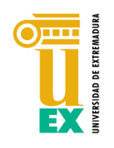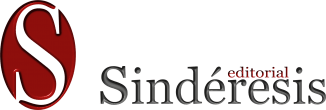PLAZO PARA RECEPCIÓN
DE MANUSCRITOS
30 DE OCTUBRE DE 2024
1. Type of work
AFDUE mainly publishes the following types of studies:
2. Languages
Papers may be written in Spanish, Portuguese, Catalan, French, Italian or English.
Papers must be submitted in Word format (.doc or .docx), in Times New Roman 12 point font, with single line spacing and justification on both sides. Papers must be sent with footnotes, automatically numbered using Arabic numerals, in the same font and size 10.
The use of any other automatic format (including paragraphs), macros and heading levels is not recommended:
1.1.
1.1.1.
2.
2.1.
…
Literal quotations in long fragments in the main text, which appear as a stand-alone paragraph, must be in 11 font size, with the paragraph in italics and without quotation marks if the language is different from that used in the work; quotation marks must be used if it is in the same language as that in which the study is presented.
The latter is also valid for the footnotes. The footnote call number, which is made in the body of the main text, is placed in a cantilever immediately after the word; if it goes at the end of a sentence, the call number is incorporated before the punctuation; no space is left between the word and the number. If the note affects a text in quotation marks, the call number is placed between the closing quotation marks and the punctuation, if any.
A space must be left between the footnote number and the first word of the note. Works should be quoted in italics and articles or book chapters should be quoted in quotation marks. A bibliographic appendix or bibliographic references should be included at the end of the article.
The first page will contain the title, abstract and keywords, both in Spanish and English. After the title, the name of the author and the institution to which he/she is linked (university, international organization, law firm) will be indicated, if possible. Likewise, after the key words, a summary of the work should be added, indicating its structure in sections and subsections.
Articles and case law require a summary of no more than 200 words written in the language of the paper, in English and also in Spanish if this is not the language used in the study. The summary should be a brief text of the work, indicating the objective of the work, the sources, methodology, arguments and conclusions, and not introducing new ideas that are not mentioned in the main body of the text. The summary should also be included, within the appropriate field, in the online submission system (OJS).
Papers should be submitted using the Open Journal System (OJS) found on our website (https://publicaciones.unex.es/index.php/AFD), through the highlighted link "Submit an article". It can also be sent by e-mail to the Director of the Yearbook, if not possible through the above system.
No work will be accepted that is not sent by the above-mentioned means, with those that are submitted by a different route being understood as not having been submitted for the consideration of the journal. The above is applicable both to the first version of the document and to any subsequent versions thereof.
Papers submitted to the AFDUE for publication will be subject to an anti-plagiarism review programme.
he papers selected by the Editorial Board will then be submitted to a peer review, anonymously and confidentially, by experts outside the Editorial Team. In order for the identities of the authors to remain anonymous, a separate title page must be uploaded and there must be no author identification information in the main file of the text.
The two expert reviewers will issue a report on the evaluated work, which will be communicated to the author. The result of the review can be a) positive; b) positive with recommendations for improvement by the author; and c) negative. In case of disparate opinions between the two evaluators, the work will be sent to a third evaluator. The Editorial Board will decide on the publication of the study in the light of the reports issued, asking the author, if necessary, for the modifications suggested by the evaluators.
The authors will transfer the rights of exploitation and copy of the works finally accepted for publication.
AFDUE maintains the citation forms from the Chicago Manual of Style, 16th edition, which is detailed in the following section.
30 DE OCTUBRE DE 2024
| Edita: Servicio de Publicaciones de la Universidad de Extremadura |
Apoyo Técnico: Editorial Sindéresis |
 |
 |
Derechos de autor:

Reconocimiento CC BY
Dirección Publicaciones:
Plaza de Caldereros, 2. Planta 3ª
10003 -Cáceres
Teléfono: 927 25 70 41 / Fax: 927 25 70 46
E-mail: publicac@unex.es
http://www.unex.es/publicaciones
